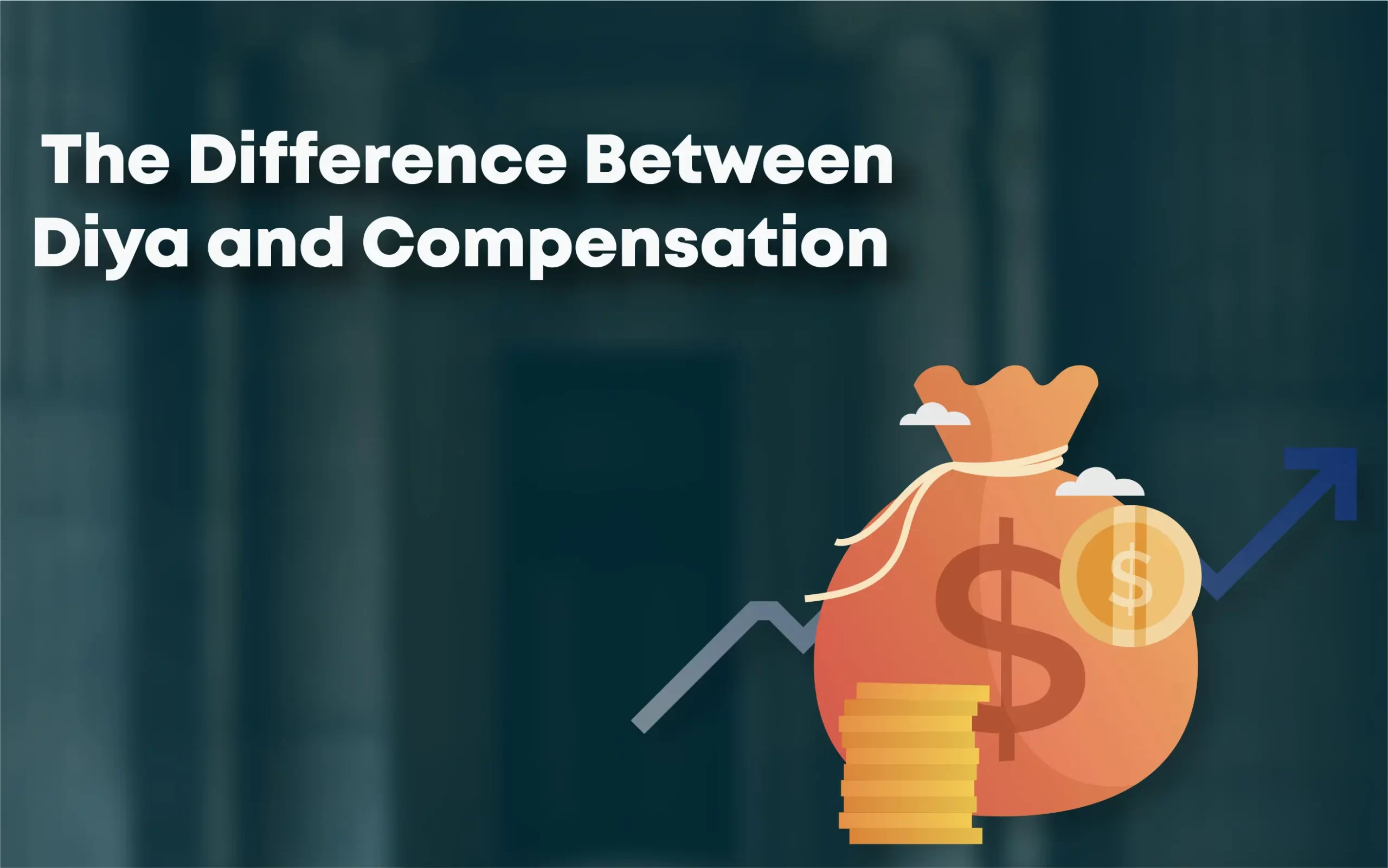Introduction
The issue of Diya and compensation is a sensitive and complex matter in both legal and Islamic jurisprudence. It pertains to the compensation of individuals who suffer material or moral harm as a result of harmful actions committed against them. This topic raises many questions regarding the difference between Diya and compensation and whether they can be combined. Let’s delve into this matter in depth.
Compensation Legally
Compensation is the financial reparation awarded to a person who proves to the court that they have suffered harm due to a harmful act committed against them. This harm can be either material or moral, and the person seeking compensation must prove the occurrence of harm and its connection to the harmful act. The amount of compensation varies depending on the judge’s discretion and the circumstances surrounding the case.
Diya According to Islamic Law
Diya, on the other hand, is a penalty prescribed by Islamic Sharia in certain cases such as homicide, unintentional bodily harm, and manslaughter. Its source is the Quran, where Allah Almighty says in Surah An-Nisa (Verse 92), “And never is it for a believer to kill a believer except by mistake. And whoever kills a believer by mistake – then the freeing of a believing slave and a compensation payment presented to the deceased’s family [is required] unless they give [up their right as] charity.
Key Differences Between Diya and Compensation
1- Purpose
Diya: The primary purpose of Diya is to satisfy the family of the victim and compensate them for the loss of one of their members.
Compensation: The purpose is to redress the harm suffered by the victim as a result of the harmful act, whether it is material or moral in nature.
2- Source of Obligation
Diya: Its source is Islamic Sharia and its texts.
Compensation: Its source is civil laws and legal regulations.
3- Amount Determination
Diya: The amount of Diya is fixed and not subject to the judge’s discretion.
Compensation: Its amount is determined based on the judge’s judgment and the circumstances of the case.
Can They Be Combined?
In the civil laws of some countries, the combination of Diya and compensation is prohibited in specific cases, especially when it concerns physical harm inflicted on the victim. For example, in the UAE Civil Transactions Law, it is stated that “Diya and compensation cannot be combined unless agreed upon by both parties” (Article 299). However, this prohibition is limited to the individual victim and does not extend to any moral harm that may be incurred by their heirs due to their death.
Expert Opinions
Ahmed Saber – Head of Litigation Department
Ahmed Saber believes that the difference between Diya and compensation primarily depends on their nature and purpose. Diya is a part of Islamic Sharia and is imposed to satisfy the victim’s family and grant them their religious rights according to religious laws. Compensation, on the other hand, is a legal concept aimed at compensating individuals for losses resulting from harmful actions. Ahmed Saber emphasizes the importance of respecting civil laws when it comes to compensation and advises individuals to seek their rights under these laws while respecting the rules of Diya if applicable.
Nada Al-Mawwi – Head of Consultations Department
Nada Al-Mawwi sees Diya and compensation as entirely different concepts. Diya is a part of Islamic Sharia related to religious and moral aspects, while compensation is related to civil laws and legal rules, relying on legal evidence and matters. She stresses the importance of consulting with a specialized lawyer in compensation cases to understand rights, obligations, and legal procedures related to compensation. She also emphasizes that individuals should comply with the laws and regulations applicable in their country to avoid legal complications.
In Conclusion
Diya and compensation remain complex issues that require a precise understanding of Sharia and civil laws. Individuals should research their rights and consult with specialized lawyers to understand their personal situations and seek compensation or Diya if possible under the applicable laws and regulations.

